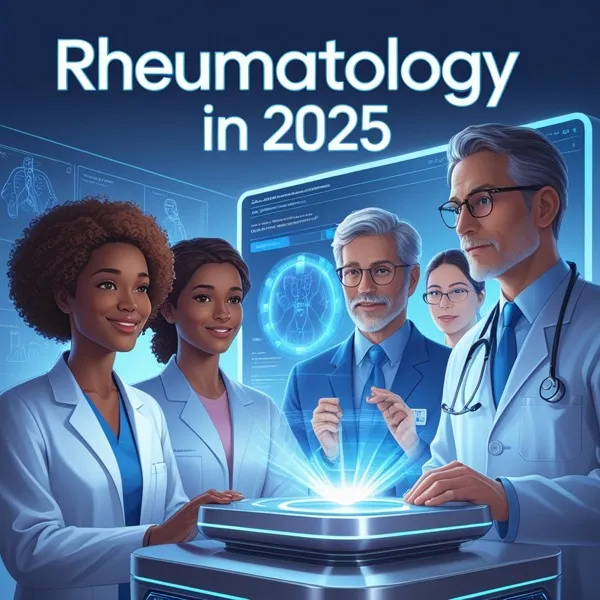Rheumatology is evolving at a rapid pace, and 2025 is set to introduce groundbreaking developments that will redefine how rheumatic diseases are diagnosed, treated, and managed. From personalized medicine and telehealth innovations to novel biologic agents, multidisciplinary care, and the integration of artificial intelligence (AI), several emerging trends are poised to transform clinical practice. The Congress of Clinical Rheumatology East 2025, held in Destin, Florida, offers a unique opportunity for rheumatologists and healthcare professionals to engage with these trends through practical, hands-on learning.
Personalized Medicine
Personalized medicine is revolutionizing rheumatology by enabling treatments to be tailored to each patient’s unique genetic profile and disease characteristics. Advances in genomics and biomarker research are allowing clinicians to identify the most effective therapies while minimizing adverse effects. At the Congress, dedicated sessions will focus on interpreting genetic tests and utilizing pharmacogenomics to select optimal medications. Participants will gain practical skills in leveraging biomarkers to guide treatment decisions, ensuring that precision care becomes an integral part of everyday practice.
Telemedicine and Remote Patient Monitoring
Telemedicine has become an essential component of rheumatology care, particularly following the increased adoption during the COVID-19 pandemic. In 2025, virtual visits and remote monitoring tools are expected to further expand access to specialized care, especially for patients in rural areas, while enhancing convenience for all. The Congress will offer practical workshops on setting up virtual clinics, mastering telehealth platforms, and conducting remote physical examinations. Sessions on using remote monitoring devices will also provide insights into how real-time data can inform treatment adjustments, seamlessly integrating telemedicine into clinical workflows.
New Biologic Agents and Targeted Therapies
The development of new biologic agents and targeted therapies continues to offer promising solutions for conditions such as psoriatic arthritis and ankylosing spondylitis. These innovative treatments, supported by robust clinical research, promise enhanced efficacy and improved safety profiles compared to traditional therapies. At the Congress, experts will provide detailed updates on the latest clinical trials and practical guidance on incorporating these therapies into patient care. Attendees will learn strategies for selecting appropriate treatments and managing potential side effects, equipping them to optimize outcomes for their patients.
Multidisciplinary Care and Collaboration
Given the complexity of rheumatic diseases, effective management often requires a collaborative approach involving rheumatologists, primary care physicians, physical therapists, and mental health professionals. In 2025, the emphasis on multidisciplinary care is greater than ever. The Congress will feature sessions focused on building collaborative skills, including workshops on developing shared care plans and improving communication across specialties. Additionally, training on the use of electronic health records and other collaborative tools will help streamline teamwork, enabling practitioners to deliver holistic, high-quality care.
Artificial Intelligence and Machine Learning
Artificial intelligence and machine learning are increasingly influencing the field of rheumatology by enhancing diagnostic accuracy and optimizing treatment strategies. These technologies can analyze complex data to predict disease flares, refine diagnoses, and support decision-making processes. The Congress will demystify AI through practical sessions that explore its application in forecasting disease activity and interpreting algorithm-generated insights. By gaining hands-on experience with these advanced tools, attendees will be well-equipped to integrate AI into their clinical practice and improve patient outcomes.
Conclusion
The landscape of rheumatology in 2025 is defined by innovation and practicality. Trends such as personalized medicine, telemedicine, advanced therapies, multidisciplinary collaboration, and AI are paving the way for significant improvements in patient care. The Congress of Clinical Rheumatology East 2025 is the ideal forum for healthcare professionals to explore these developments through immersive, hands-on learning experiences. Join us at CCR East 2025 for more insights and how to incorporate these trends into your daily practice.
